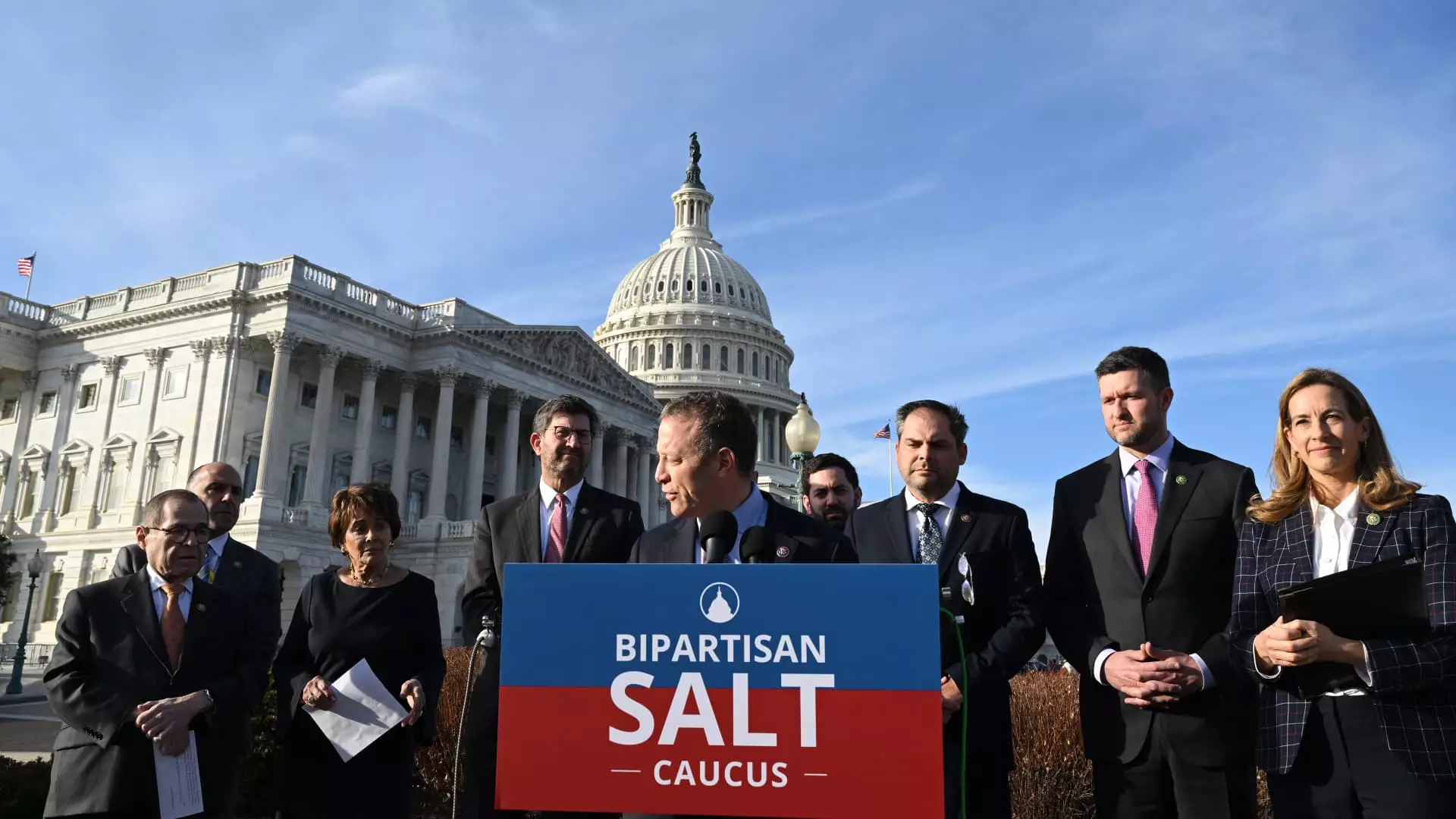In the wake of President Trump’s tax reforms through the 2017 Tax Cuts and Jobs Act (TCJA), a contentious issue has bubbled to the surface: the state and local tax (SALT) deduction cap of $10,000. This provision has sparked intense debate regarding its ramifications, particularly on the middle and lower-income households compared to wealthier Americans. The underlying message is clear—while the cap may seem neoliberal in intent, its implications are decidedly beneficial for those within the upper echelons of wealth.
The SALT cap was originally designed to curb deductions predominantly claimed by wealthy taxpayers residing in high-tax states, such as California and New York. However, evidence suggests that this provision has convoluted these intentions, frequently distorting who benefits from tax policy. Traditionally, high-income individuals tend to accumulate higher state and local taxes due to the nature of real estate, property values, and earnings in metropolitan areas. Thus, these taxpayers end up wielding significantly more power in discussions around possible cap adjustments or repeals.
Political Negotiations: The Influence of the Wealthy
As the political climate continues to evolve, it is evident that lawmakers representing these high-tax states are more vocal than ever regarding the need for a revamped SALT cap. With the House’s slim Republican majority, their voices could carry substantial weight in negotiations. This dynamic raises essential questions about whose interests are truly being served in the political sphere.
It is not merely a fiscal policy discussion; it reflects broader socio-economic stratifications in the United States. Wealthy constituents, particularly those earning above $200,000, are positioned to derive the most benefit from any potential SALT cap reformation. Proposals, such as increasing the SALT deduction cap for married couples from $10,000 to $20,000, would disproportionately favor affluent households, while offering minimal relief to lower-income taxpayers. This trend significantly calls into question the ethics of tax reforms and who the government prioritizes in its policymaking.
The Myopic View of Middle-Class Relief
Interestingly, many proponents of increasing the SALT deduction make appeals to the middle class, but how genuine are these claims? In reality, the vast majority of American taxpayers have opted for the expanded standard deduction—or roughly 90%, according to IRS data. This fact alone reveals a stark contradiction: while advocates for SALT reform argue it’s essential for the average citizen, the reality is that few have anything to gain. Higher earners, who frequently itemize deductions, are the real constituency benefiting, validating the assertion that the affluent maintain disproportionate influence over tax reform narratives.
Moreover, the argument that raising the SALT cap would positively impact the middle class obscures key outcomes. It perpetuates the myth that tax policies can effectively bridge economic divides without addressing the core issue: rising inequality in America. Politicians leveraging these arguments are strikingly short-sighted, failing to recognize that the benefits awarded to few merely echo the long-standing status quo of wealth concentration.
The Question of Fairness: Who Pays the Price?
With discussions swirling around the potential repeal of the SALT cap, it’s imperative to examine who ultimately bears the burden of these reforms. Should lawmakers capitulate and increase or eliminate the cap, lower-income households will likely see even less investment in social programs targeting their needs. The shift towards prioritizing benefits for high-income earners can foster resentment and detachment from government systems that are purportedly meant to serve all citizens.
According to the Tax Policy Center, households earning $430,000 or more would reap nearly 75% of the benefits from a complete cap repeal. This uncoupling of tax liabilities from actual socio-economic realities serves as a pivotal reminder that financial decisions in Congress often favor those who least require assistance. It forefronts the need for a balanced approach to taxation—one that emphasizes equitable contributions, rather than catering predominantly to the well-off elite.
A Path Forward: Balancing Equity with Pragmatism
As debates around the SALT cap continue, a broader conversation about equity, taxation, and representation must emerge. Lawmakers should resist the allure of appeasing the wealthiest while neglecting the needs of the working class. While raising the SALT cap might seem like a politically expedient compromise, policymakers must grapple with the broader implications it holds for American society.
Increasing the cap could indeed offer short-term relief to a specific demographic, yet it fundamentally undermines the social contract that binds us. Rather than merely perpetuating tax policies that benefit the affluent, the onus is on our leaders to devise a distinctly inclusive financial framework that recognizes the diverse strata of American society. It’s time to ensure that those who have the most also contribute their fair share in building a more equitable nation.

